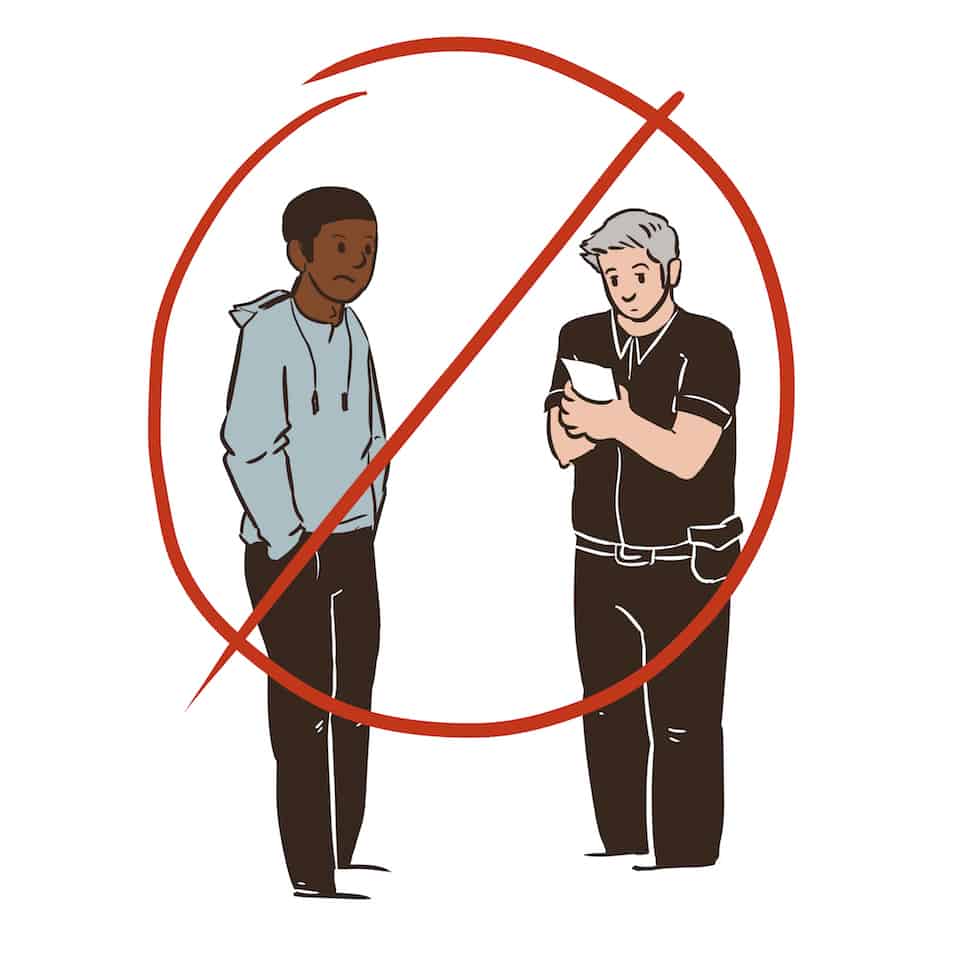Yasir Naqvi, Ontario’s minister of community safety and correctional services announced his intent to ban “random and arbitrary carding.” Community groups and activists have long been pressuring the government to eliminate this practice.
Carding, which has been described as “community engagement” by Toronto’s police force, is seen as a racist policy by many. It allows police to interrogate people without clear indication that they have committed a crime.
“These new draft regulations are a long awaited step in the right direction by those in positions of power, however we still have a very long way to go,” says Hashim Yussuf, a UTMSU Board of Directors member who also sits on the Toronto Police Advisory Committee for Review.
Meaghan Gray, spokesperson for the Toronto Police Service, spoke in support of intelligence-led carding. “The benefits… not only assist police with identifying and arresting offenders but also help to exonerate innocent people who may otherwise be suspects of a crime.” She emphasized, however, that the Toronto Police Service sees arbitrary carding that is not intelligence-led but motivated by prejudice as “unacceptable.”
Dissecting the implications of the government’s decision
Akwasi Owusu-Bempah, a former PhD candidate at U of T with specialization in race and policing in Toronto, told The Varsity that the government’s recent decision to end arbitrary carding does not mean that carding has been banned entirely. “‘Arbitrary’ use of the practice is to cease. What that looks like in practice is yet to be seen.”
Yussuf echoed Owusu-Bempah’s sentiments: “just because there is a law saying that a cop can’t randomly card someone, doesn’t stop the cop from making up a fake reason and continuing,” he said.
Yussuf further stated that he does not believe that regulating carding, which the government has proposed, is the right approach. “The provincial government had to do something and change the environment or the perceptions around it. Politics is all about keeping a good face even if that means making changes that don’t really matter.” Activists such as Yussuf and those associated with the Black Lives Matter movement are not satisfied with the regulation of carding and advocate for the elimination of the practice in its entirety.
Jessica Kirk, Scarborough Campus Students’ Union’s (SCSU) vice-president equity, is also skeptical about the effectiveness of the government’s new regulations on carding. “Eliminating [arbitrary] carding without a more wholehearted approach to addressing the underlying issues like racial profiling is like putting a small Band-Aid on an open wound.”
Gray outlined the ways Toronto Police Services has worked to address racial profiling. “Like everyone else, police officers have biases. We train our officers to recognize and manage these biases. Having these biases does not equate to racial profiling; acting on them does. When that happens, the service holds those members accountable for their actions.”
U of T’s relationship to carding and racial profiling
Kirk described how U of T students have been affected by carding. “Students have spoken to me about numerous accounts of racial profiling, carding, and hostile interactions with the police. All students who have spoken to me were black themselves, or have spoken to me about being carded when among a group of friends who are black.”
Seeing the effect carding and racial profiling has on the U of T community, Owusu-Bempah said that he strongly encourages student engagement, and Kirk mentioned that the SCSU continues to actively support the grassroots organization Black Lives Matter Toronto.
Yussuf also believes that U of T should play a strong role in fighting racial discrimination in the police force, suggesting ways the U of T community can become involved. “As the premier university in Canada, our university can provide lots of academic research into creating new policies for the government and police. The university can invest its resources into giving folks like Black Lives Matter Toronto a voice to organize and educate… The students and population of the university just needs to hold the administration and top decision makers accountable, if we want to see change that is.”
While Ontario’s alters the practice of carding, U of T, Toronto’s academics, activists, and students remain wary when considering the new regulations as a solution to a deeper race issue. “Don’t get me wrong,” Owusu-Bempah said “things have changed, but much still stays the same.”


